Mercedes EQB vs Peugeot 2008 – Differences & prices compared
Two cars, one duel: Mercedes EQB meets Peugeot 2008.
Which one wins in performance, efficiency and value for money? Find out now!
Costs and Efficiency: Price and efficiency are often the first things buyers look at. Here it becomes clear which model has the long-term edge – whether at the pump, the plug, or in purchase price.
Peugeot 2008 has a clearly advantage in terms of price – it starts at 24500 £, while the Mercedes EQB costs 45900 £. That’s a price difference of around 21407 £.
In terms of energy consumption, the advantage goes to the Mercedes EQB: with 15.20 kWh per 100 km, it’s hardly perceptible more efficient than the Peugeot 2008 with 15.50 kWh. That’s a difference of about 0.30 kWh.
As for range, the Mercedes EQB performs evident better – achieving up to 535 km, about 129 km more than the Peugeot 2008.
Engine and Performance: Under the bonnet, it becomes clear which model is tuned for sportiness and which one takes the lead when you hit the accelerator.
When it comes to engine power, the Mercedes EQB has a convincingly edge – offering 292 HP compared to 156 HP. That’s roughly 136 HP more horsepower.
In acceleration from 0 to 100 km/h, the Mercedes EQB is evident quicker – completing the sprint in 6.20 s, while the Peugeot 2008 takes 8.30 s. That’s about 2.10 s faster.
In terms of top speed, the Peugeot 2008 performs distinct better – reaching 206 km/h, while the Mercedes EQB tops out at 160 km/h. The difference is around 46 km/h.
There’s also a difference in torque: Mercedes EQB pulls convincingly stronger with 520 Nm compared to 270 Nm. That’s about 250 Nm difference.
Space and Everyday Use: Beyond pure performance, interior space and usability matter most in daily life. This is where you see which car is more practical and versatile.
Both vehicles offer seating for 5 people.
In curb weight, Peugeot 2008 is convincingly lighter – 1263 kg compared to 2105 kg. The difference is around 842 kg.
In terms of boot space, the Mercedes EQB offers a bit more room – 495 L compared to 434 L. That’s a difference of about 61 L.
In maximum load capacity, the Mercedes EQB performs a bit better – up to 1710 L, which is about 243 L more than the Peugeot 2008.
When it comes to payload, Peugeot 2008 slight takes the win – 460 kg compared to 435 kg. That’s a difference of about 25 kg.
Who comes out on top?
Overall, the Mercedes EQB shows itself to be outperforms in nearly all aspects and secures the title of DriveDuel Champion.
It convinces with the more balanced overall package and proves to be the more versatile choice for everyday use.
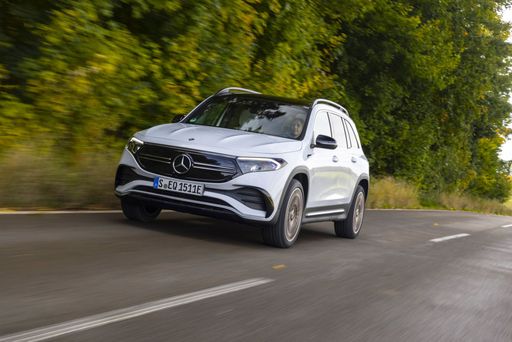
Mercedes EQB
Mercedes EQB
The Mercedes-Benz EQB is an all-electric compact SUV that seamlessly blends practicality with modern luxury. Its sleek design and spacious interior make it an attractive option for families seeking both style and function. With advanced technology and impressive range capabilities, the EQB is a testament to Mercedes-Benz's commitment to sustainable mobility.
details @ group-media.mercedes-benz.com
@ group-media.mercedes-benz.com
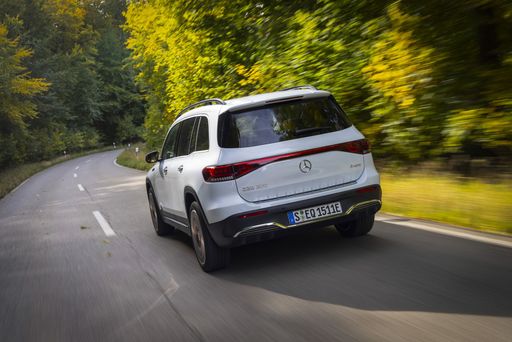 @ group-media.mercedes-benz.com
@ group-media.mercedes-benz.com
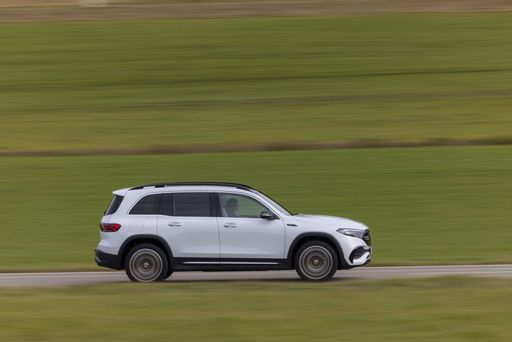 @ group-media.mercedes-benz.com
@ group-media.mercedes-benz.com
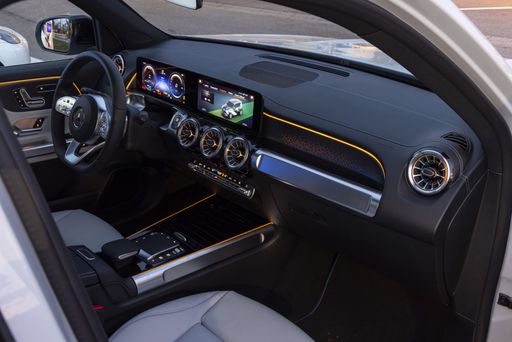 @ group-media.mercedes-benz.com
@ group-media.mercedes-benz.com
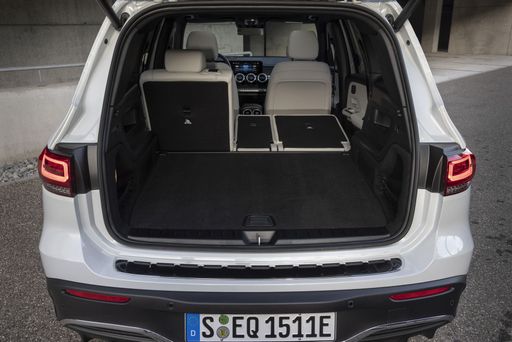 @ group-media.mercedes-benz.com
@ group-media.mercedes-benz.com
Peugeot 2008
The Peugeot 2008 stands out in the compact SUV market with its blend of striking design and practical functionality. It offers a comfortable ride with a sophisticated interior that exudes quality, making it ideal for both urban commutes and longer journeys. The model's efficient performance and range of modern features further enhance its appeal to a diverse range of drivers.
details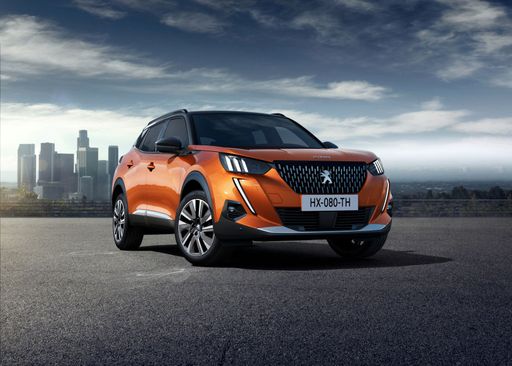 @ media.stellantis.com
@ media.stellantis.com
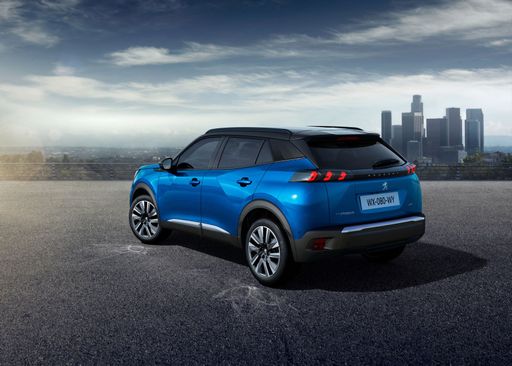 @ media.stellantis.com
@ media.stellantis.com
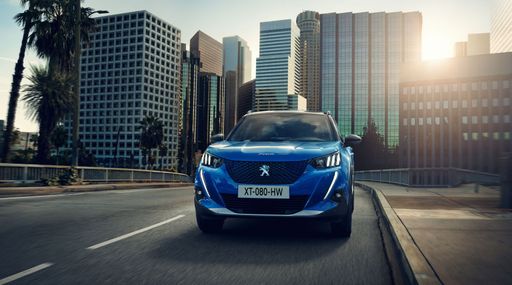 @ media.stellantis.com
@ media.stellantis.com
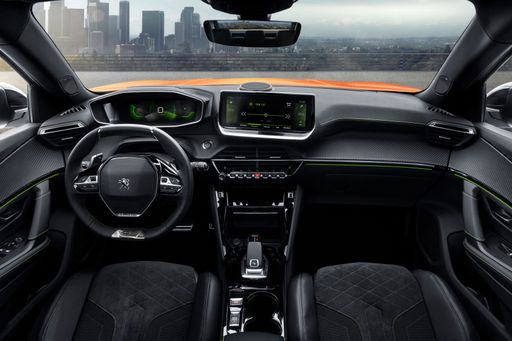 @ media.stellantis.com
@ media.stellantis.com

|

|
|
|
|
Costs and Consumption |
|
|---|---|
|
Price
45900 - 58900 £
|
Price
24500 - 40300 £
|
|
Consumption L/100km
-
|
Consumption L/100km
5 - 6.2 L
|
|
Consumption kWh/100km
15.2 - 17.2 kWh
|
Consumption kWh/100km
15.50 kWh
|
|
Electric Range
468 - 535 km
|
Electric Range
406 km
|
|
Battery Capacity
70.50 kWh
|
Battery Capacity
51 kWh
|
|
co2
0 g/km
|
co2
0 - 140 g/km
|
|
Fuel tank capacity
-
|
Fuel tank capacity
44 L
|
Dimensions and Body |
|
|---|---|
|
Body Type
SUV
|
Body Type
SUV
|
|
Seats
5
|
Seats
5
|
|
Doors
5
|
Doors
5
|
|
Curb weight
2105 - 2170 kg
|
Curb weight
1263 - 1623 kg
|
|
Trunk capacity
495 L
|
Trunk capacity
434 L
|
|
Length
4684 mm
|
Length
4304 mm
|
|
Width
1834 mm
|
Width
1770 mm
|
|
Height
1654 - 1689 mm
|
Height
1523 mm
|
|
Max trunk capacity
1710 L
|
Max trunk capacity
1467 L
|
|
Payload
435 kg
|
Payload
407 - 460 kg
|
Engine and Performance |
|
|---|---|
|
Engine Type
Electric
|
Engine Type
Petrol, Electric, Petrol MHEV
|
|
Transmission
Automatic
|
Transmission
Manuel, Automatic
|
|
Transmission Detail
Reduction Gearbox
|
Transmission Detail
Manual Gearbox, Reduction Gearbox, Automatic Gearbox, Dual-Clutch Automatic
|
|
Drive Type
Front-Wheel Drive, All-Wheel Drive
|
Drive Type
Front-Wheel Drive
|
|
Power HP
190 - 292 HP
|
Power HP
101 - 156 HP
|
|
Acceleration 0-100km/h
6.2 - 8.9 s
|
Acceleration 0-100km/h
8.3 - 10.9 s
|
|
Max Speed
160 km/h
|
Max Speed
150 - 206 km/h
|
|
Torque
385 - 520 Nm
|
Torque
205 - 270 Nm
|
|
Number of Cylinders
-
|
Number of Cylinders
3
|
|
Power kW
140 - 215 kW
|
Power kW
74 - 115 kW
|
|
Engine capacity
-
|
Engine capacity
1199 cm3
|
General |
|
|---|---|
|
Model Year
2024 - 2025
|
Model Year
2023 - 2025
|
|
CO2 Efficiency Class
A
|
CO2 Efficiency Class
D, A, E, C
|
|
Brand
Mercedes-Benz
|
Brand
Peugeot
|
What drive types are available for the Mercedes EQB?
The Mercedes EQB is available as Front-Wheel Drive or All-Wheel Drive.
The prices and data displayed are estimates based on German list prices and may vary by country. This information is not legally binding.
